
Gas Science and Engineering
Scope & Guideline
Connecting Scholars and Experts in Gas Sciences
Introduction
Aims and Scopes
- Gas Hydrate Research:
The journal emphasizes the study of gas hydrates, including their stability, formation, and potential applications in energy recovery and carbon capture. - Carbon Capture and Storage (CCS):
A core area of focus is the development and optimization of technologies for carbon capture and storage, particularly using geological formations and innovative materials. - Natural Gas Production Optimization:
Research related to the optimization of natural gas production techniques, including hydraulic fracturing and reservoir management, is prevalent. - Geomechanics and Fluid Dynamics:
The journal covers the geomechanical aspects of gas extraction, including the interactions between gas, water, and rock properties under various conditions. - Machine Learning and Computational Modeling:
There is a strong emphasis on the application of machine learning and computational modeling techniques in predicting gas behaviors and optimizing extraction processes. - Environmental Impact and Sustainability:
The journal addresses the environmental impacts of gas extraction and utilization, focusing on sustainable practices and the mitigation of greenhouse gas emissions.
Trending and Emerging
- Innovations in Carbon Capture Technologies:
Research on novel materials and methods for carbon capture is on the rise, driven by the urgent need to mitigate climate change impacts. - Gas Hydrate Applications for Energy Storage:
There is an increasing focus on the potential of gas hydrates not only as an energy resource but also in energy storage and carbon sequestration. - Advanced Numerical Modeling Techniques:
The adoption of advanced numerical modeling techniques, including machine learning and computational fluid dynamics, is trending, allowing for more accurate predictions of gas behavior. - Sustainable Energy Solutions:
Research into sustainable practices in gas extraction and utilization is gaining importance, emphasizing the need for environmentally responsible energy solutions. - Multi-Phase Flow Dynamics in Reservoirs:
Emerging studies on multi-phase flow dynamics in unconventional reservoirs reflect a growing interest in understanding complex interactions in gas extraction. - Interdisciplinary Approaches:
There is a clear trend toward interdisciplinary research that combines insights from geosciences, engineering, and environmental science to address complex challenges in gas science.
Declining or Waning
- Traditional Gas Extraction Methods:
Research focused on conventional gas extraction techniques has seen a decrease, likely due to a shift towards more innovative and environmentally-friendly methods. - Basic Thermodynamic Studies:
Basic studies on thermodynamic properties of gases, while still relevant, are appearing less frequently as the journal emphasizes more applied and interdisciplinary research. - Hydrocarbon Exploration in Low-Potential Areas:
Research related to hydrocarbon exploration in regions deemed low-potential is diminishing, as the focus shifts towards high-potential unconventional resources. - Historical Review Papers:
While review papers are essential, the frequency of historical reviews has declined in favor of more current and forward-looking studies that propose new methodologies or technologies.
Similar Journals
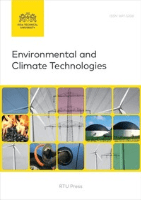
Environmental and Climate Technologies
Exploring Frontiers in Environmental Science and Renewable Energy.Environmental and Climate Technologies is a premier open-access journal dedicated to advancing knowledge in the fields of environmental science and renewable energy. Published by SCIENDO since 2009, this journal plays a crucial role in disseminating innovative research and interdisciplinary studies that address the pressing challenges posed by climate change and sustainable development. With its current positioning in the Q2 quartile for Environmental Science (miscellaneous) and Q3 for Renewable Energy, Sustainability and the Environment, it is recognized for its significant contributions to the academic community, ranking #107 out of 233 in General Environmental Science and #161 out of 270 in Renewable Energy. Hailing from Germany and operating under an open-access policy, Environmental and Climate Technologies ensures that research remains accessible to a global audience, fostering collaboration and discussion among researchers, professionals, and students alike. The journal invites rigorous scientific inquiries and practical solutions that can mitigate the impact of climate-related issues, making it a vital resource for those committed to environmental stewardship and sustainability.

SOCAR Proceedings
Advancing Knowledge in Energy and Engineering Sciences.SOCAR Proceedings is a distinguished academic journal published by the State Oil Company of the Azerbaijan Republic, specifically from the Oil Gas Scientific Research Project Institute. This journal addresses vital aspects of various interdisciplinary fields including Applied Mathematics, Chemical Engineering, Energy Engineering, and Geosciences, making it an essential resource for researchers and professionals alike. Since its inception in 2010, SOCAR Proceedings has cultivated significant contributions to the knowledge base, particularly as it boasts a respectable Q3 category ranking across several relevant fields for 2023. As a journal known for its commitment to disseminating innovative research, it offers invaluable insights into the energy sector that are particularly pertinent to the regional and global challenges posed by resource management and environmental sustainability. With an evolving focus up to 2024, SOCAR Proceedings continues to foster scholarly dialogue and research advancements, making it a vital forum for students and academics looking to deepen their understanding of energy and engineering sciences.

CT&F-Ciencia Tecnologia y Futuro
Pioneering research for a sustainable future.CT&F-Ciencia Tecnologia y Futuro, a distinguished open-access journal published by ECOPETROL SA, serves as a vital platform for the dissemination of innovative research and advancements in the fields of chemical engineering, energy, fuel technology, and the broader disciplines within the geosciences. Established in 1996 and operating continuously until 2023, this bilingual journal aims to foster collaboration and knowledge exchange among researchers, professionals, and students in Colombia and beyond. With an increasing emphasis on sustainability and renewable energy, CT&F aligns with contemporary academic priorities and societal challenges. Although currently ranked in the Q4 category across multiple disciplines, the journal remains committed to enhancing its impact and accessibility, providing researchers with valuable insights and a significant forum to share their findings, all under the auspices of open-access since 2009. Explore a wealth of research as you contribute to the ongoing dialogue shaping the future of science and technology.
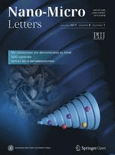
Nano-Micro Letters
Unveiling the future of materials science, one letter at a time.Nano-Micro Letters is a premier open-access journal published by Shanghai Jiao Tong University Press, specializing in groundbreaking research in the fields of Electrical and Electronic Engineering, Nanoscience, and Materials Science. Launched in 2009, this journal has rapidly established its reputation, achieving Q1 ranking across various categories, including Electronic, Optical and Magnetic Materials, and Surfaces, Coatings and Films, indicating its significant impact within the academic community. With an impressive Scopus ranking of #5 out of 797 in Electrical and Electronic Engineering and #2 in Surfaces, Coatings and Films, Nano-Micro Letters serves as a vital platform for disseminating cutting-edge insights and innovations in nanotechnology. Researchers, professionals, and students are encouraged to engage with the open-access content, fostering a collaborative environment that promotes the advancement of knowledge in these dynamic fields.
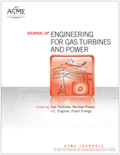
JOURNAL OF ENGINEERING FOR GAS TURBINES AND POWER-TRANSACTIONS OF THE ASME
Navigating the Frontiers of Gas Turbines and PowerJournal of Engineering for Gas Turbines and Power - Transactions of the ASME, published by the esteemed American Society of Mechanical Engineers (ASME), is a leading interdisciplinary journal dedicated to advancing the fields of energy engineering, aerospace, nuclear energy, and mechanical engineering. With an impressive history dating back to 1960 and continuing its contributions through 2024, this journal boasts a Q2 ranking in multiple engineering categories, reflecting its strong impact on both academia and industry. Although not an open-access journal, it provides invaluable insights and research findings that cater to the needs of professionals, researchers, and students alike. The journal's ISSN is 0742-4795 with an E-ISSN of 1528-8919, ensuring widespread visibility in the global academic community. Indexed in Scopus, it ranks notably within its fields—21st in Nuclear Energy and Engineering and 51st in Aerospace Engineering—underscoring its relevance and contribution to critical technological advancements. Researchers in this domain will find the journal a vital resource for innovative studies, practical applications, and the latest developments related to gas turbines and power generation.
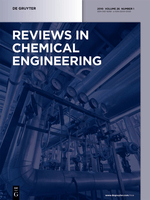
REVIEWS IN CHEMICAL ENGINEERING
Empowering Scholars to Shape the Future of Chemical Engineering.REVIEWS IN CHEMICAL ENGINEERING, published by Walter de Gruyter GmbH, is a premier journal that delivers cutting-edge insights and comprehensive reviews in the field of chemical engineering. Established as an eminent resource since 1982, this journal is committed to advancing knowledge and fostering innovation in various domains of chemical engineering, including process design, materials, and environmental considerations. With an impressive Q1 ranking in the 2023 Scopus category for Chemical Engineering and a commendable 20th position out of 273 journals, it is recognized for its rigorous peer-review process and high-impact contributions. Although it operates under a subscription model, the journal remains a vital platform for researchers and professionals aiming to stay at the forefront of technological advancements and scholarly discourse in chemical engineering. With a focus on interdisciplinary applications and real-world relevance, REVIEWS IN CHEMICAL ENGINEERING is an indispensable resource for academics, industry professionals, and students dedicated to excellence in this field.

Journal of Petroleum Exploration and Production Technology
Empowering Geotechnical Engineering with Cutting-Edge ResearchThe Journal of Petroleum Exploration and Production Technology, published by SPRINGER HEIDELBERG, is a prominent Open Access journal dedicated to advancing knowledge in the fields of energy, geotechnical engineering, and engineering geology. Since its inception in 2011, the journal has established itself as a critical platform for researchers and professionals seeking to share innovative research, methodologies, and technology developments in petroleum exploration and production. With an impressive ranking of Q2 in both the Energy (miscellaneous) and Geotechnical Engineering and Engineering Geology categories as of 2023, it attracts contributions that push the boundaries of our understanding in these essential industries. The journal is indexed in major databases, ensuring wide visibility and accessibility for its published work. The dedication to Open Access allows for unrestricted dissemination of research, promoting collaboration and knowledge transfer within the global community.

Transactions of the ASABE
Bridging research and practice for a sustainable tomorrow.Transactions of the ASABE is a premier journal published by the American Society of Agricultural and Biological Engineers, specializing in innovative research and practical applications in the fields of agricultural and biological engineering. With an ISSN of 2151-0032 and E-ISSN 2151-0040, this journal has established a vital niche in disseminating high-quality scholarly content that addresses the complex challenges faced in agriculture and biological systems. The journal operates under an open access model, facilitating broad dissemination of research findings to a global audience. This commitment to accessibility is reflected in its coverage of diverse topics, including agriculture, soil science, food science, and environmental engineering. Although the journal's coverage in Scopus was discontinued in 2021, it once ranked among the top in its categories, indicating its significant contribution to advancing knowledge in these essential fields. Researchers, practitioners, and students are encouraged to engage with the Transactions of the ASABE to stay abreast of developments and foster collaboration in promoting sustainable engineering solutions.
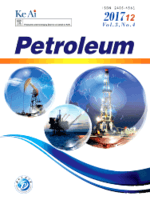
Petroleum
Empowering global collaboration in petroleum research and technology.Petroleum, an esteemed open-access journal published by KEAI PUBLISHING LTD, serves as a premier platform for disseminating high-quality research in the fields of energy engineering, fuel technology, geology, and related earth sciences. Established in 2015, the journal exemplifies innovation and scholarly rigor with a commendable ranking in the second quartile across multiple categories, including Energy Engineering and Geopolitics. With a focus on advancing knowledge and practices in the petroleum sector, it encourages submissions that encompass a broad spectrum of topics from exploration and extraction techniques to environmental impacts and sustainability measures. Based in Beijing, China, this journal's impact is further enhanced by its significant presence in the Scopus database, achieving impressive percentiles, such as the 95th for Geology and 93rd for Geochemistry and Petrology. The open-access model fosters unrestricted global collaboration and accessibility, making the latest research available to a diverse audience of researchers, professionals, and students eager to innovate and lead in the burgeoning energy landscape.
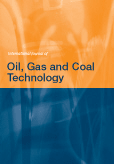
International Journal of Oil Gas and Coal Technology
Unleashing Insights in Oil, Gas, and Coal TechnologiesWelcome to the International Journal of Oil Gas and Coal Technology, a key platform for research and innovation in the energy sector, published by INDERSCIENCE ENTERPRISES LTD. With an ISSN of 1753-3309 and an E-ISSN of 1753-3317, this journal has been serving the academic community since its inception in 2008, continuing through to 2024. Located in the heart of Geneva, Switzerland, this journal focuses on the essential fields of oil, gas, and coal technologies, addressing cutting-edge developments and challenges in energy production and sustainability. Although currently categorized in the fourth quartile in Energy (Miscellaneous) and holding a Scopus rank in the 26th percentile, the journal aims to enhance its visibility and impact through rigorous peer-reviewed research articles, critical reviews, and insightful case studies that are accessible to the global academic community. Researchers, professionals, and students alike will find valuable insights and advancements in energy technology that contribute to a sustainable future.